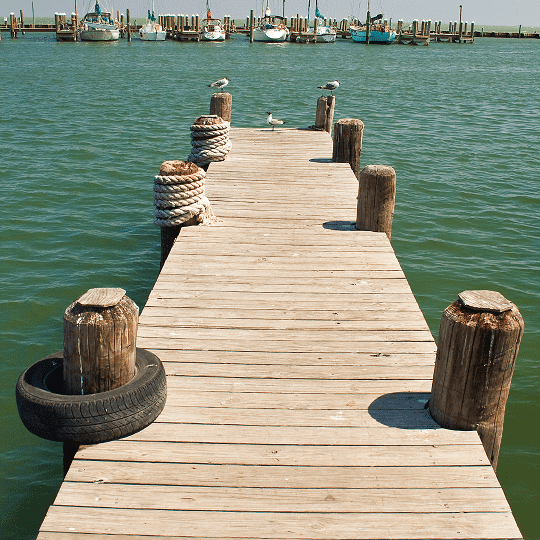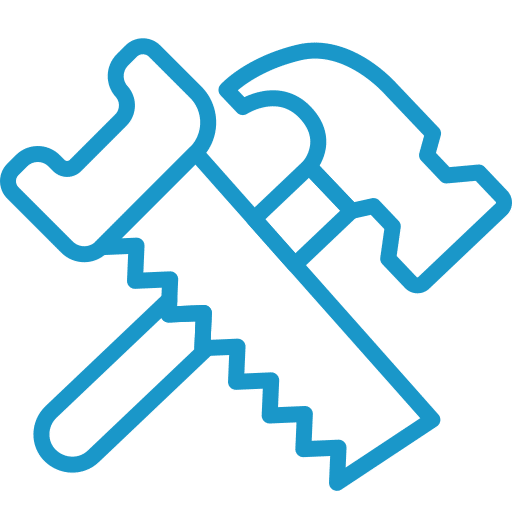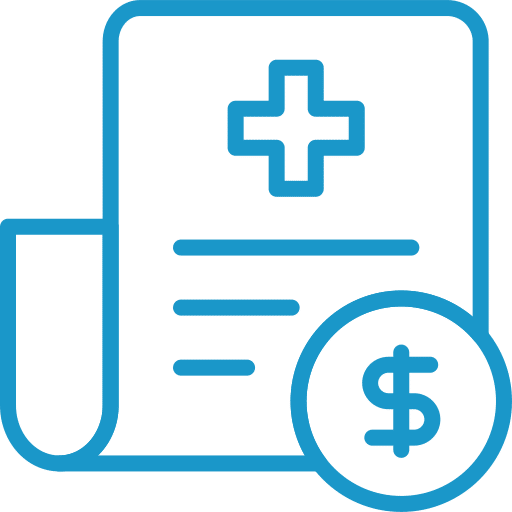Boat Slip Financing
Get pre-qualified for boat slip financing in just minutes. Checking rates won’t affect your credit score







How to Finance Boat Slips & Docks
Considering financing a boat slip or a boat dock? HomeAdvisor says the typical cost of a boat dock will set you back somewhere between $3,692 and just shy of $30,000, with top-of-the-range ones stretching the budget to $50,000 and beyond. You may be able to borrow up to $100,000 towards boat slip financing with Pasha Funding at the best rates by comparing loan options in our network.
Applying for a boat slip financing is fast and easy:
Need help finding the right loan?
No worries, we've got you covered! Compare personalized loan options in just minutes.
How Pasha Funding Works

Compare personal loan rates
Compare personal loan rates in April, 2025
Can you finance a boat dock?
Yes, it is possible to finance a boat dock. Financing options for boat docks may vary depending on factors such as the type of dock, location, and your financial circumstances.
What are the different types of boat docks?
Boat docks come in many forms and price points. The five main types are:
- Floating: A floating dock is the most cost-effective way to build a boat dock, coming in at $15-$35 per square foot depending on materials. They are not only the cheapest but offer other advantages too. They are easy to keep in good condition, they are moveable, and are great when water levels fluctuate. However, they are inherently less stable than other types and could be damaged by severe weather conditions.
- Piling: A piling dock is so-called because large-diameter pilings (10”-12”) are driven into the lakebed to support the rest of the structure. They are a little more expensive than floating docks and, with maintenance, will last for many, many years. You do need a lake bed with the right qualities to support the pilings. You are looking at up to $40 per square foot so they are a little pricier than a floating dock.
- Pipe: If your boat is not super-large, a pipe dock might be the best bet. These off-the-rack boat docks are built of aluminum and you can expect to pay anywhere from $1,000 to $10,000, including construction. You need a flat lake bottom or seafloor for a pipe dock and they are no good if you own a boat the size of an ocean liner.
- Crib: A crib dock is a permanent structure with the decking supported by cribs – large square wooden containers filled with rocks. They are very practical, but you will need a permit to build one because of the possible threat to the local ecology, and they cost well into five figures.
- Suspended: A suspended boat dock is the ultimate option – a dock built by an engineering company using the technology of a suspension bridge. They look great and have little impact on the environment but are top dollar.
What is the best material to use for a boat dock?
The best material to use for a boat dock depends on various factors, including your specific needs, budget, location, and environmental conditions. Here are a few commonly used materials for boat docks:
- Pressure-Treated Wood: Pressure-treated wood, typically Southern Yellow Pine, is a popular and cost-effective choice for boat docks. It offers durability, strength, and resistance to rot, insects, and decay. Regular maintenance and sealing are necessary to prolong its lifespan.
- Composite Decking: Composite decking is made from a combination of wood fibers and recycled plastic. It provides a low-maintenance option that is resistant to rot, warping, and insect damage. Composite decking offers excellent longevity and comes in various colors and textures.
- Aluminum: Aluminum docks are lightweight, corrosion-resistant, and require minimal maintenance. They are highly durable, offer good stability, and are suitable for both freshwater and saltwater environments. Aluminum docks can be more expensive upfront but often have a longer lifespan.
- Concrete: Concrete docks are sturdy and long-lasting. They provide excellent stability and durability, making them suitable for heavy-duty applications. However, concrete docks can be expensive to install, and their construction requires professional expertise.
- Steel: Steel docks offer strength, stability, and durability. They are well-suited for commercial or industrial applications and areas with high wave action or heavy boat traffic. However, steel docks can be costly and may require regular maintenance to prevent corrosion.
How can I finance a boat dock?
- Home Equity Loan or Home Equity Line of Credit (HELOC): If you have significant equity in your home, you can use a home equity loan or HELOC to finance a boat dock. These loans use your home as collateral, which may result in lower interest rates compared to other financing options.
- Personal Loan: You can explore personal loan options to finance a boat dock. Personal loans are typically unsecured and can be used for various purposes, including home improvements. The interest rates and terms may vary depending on your creditworthiness and the lender's criteria.
- Boat Financing: Some lenders specialize in boat loans, including financing for boat docks. These lenders may offer specific loan products designed for dock construction or improvement. These loans are often secured by the boat itself or the dock structure.
- Specialty Lenders: There are lenders that specifically cater to marine-related financing needs. These lenders understand the unique nature of boat docks and may offer specialized loan options tailored to dock construction or renovation projects.
- Manufacturer or Dealer Financing: If you purchase a boat dock from a manufacturer or dealer, they may provide financing options or work with third-party lenders to offer financing. It's worth inquiring about any available financing options during the purchase process.
- Local Financing Programs: In certain areas, there may be local financing programs or grants available for dock construction or improvement. These programs are typically specific to the region and may have eligibility requirements and restrictions.
How to finance a boat slip?
It is possible to finance the purchase of a boat slip. However, the availability of financing options may vary depending on several factors, including the location of the boat slip, the specific marina or dock facility, and your financial circumstances. Here are a few potential financing options to consider:
- Marina Financing: Some marinas or dock facilities offer financing options for purchasing boat slips within their property. They may have relationships with lending institutions or provide in-house financing programs specifically designed for boat slip purchases. Contact the marina or dock facility where the boat slip is located to inquire about their financing options.
- Specialty Lenders: There are lenders that specialize in marine-related financing, including financing for boat slips. These lenders understand the unique nature of boat slip ownership and may offer loan products tailored to this specific purpose. Research and reach out to specialty lenders to explore available financing options.
- Home Equity Loan or Home Equity Line of Credit (HELOC): If you have significant equity in your home, you may consider using a home equity loan or HELOC to finance the purchase of a boat slip. These loans use your home as collateral, which can result in lower interest rates compared to other financing options.
- Personal Loan: You can explore personal loan options from banks, credit unions, or online lenders to finance the purchase of a boat slip. Personal loans are typically unsecured and can be used for various purposes, including real estate investments. The interest rates and terms may vary depending on your creditworthiness and the lender's criteria.
- Seller Financing: In some cases, the current owner of the boat slip may be willing to provide financing directly. This arrangement, known as seller financing or owner financing, involves negotiating loan terms and repayment arrangements directly with the seller. This option can be beneficial if traditional financing options are limited.
Quick links

Ready to apply for a boat dock personal loan? Get started today.
Compare personal loan rates
Boat Slip Financing Calculator
Total Payment
-
Total Interest
-
Monthly Payment
-
Ready to apply for a personal loan?
Compare rates from top lenders with no impact on your credit, ever.
Is a boat dock or slip a good investment?
Investing in a boat dock or slip can have both advantages and considerations to evaluate. Here are some factors to consider when determining if it is a good investment:
- Location: The location of the boat dock or slip plays a significant role in its investment potential. Docks or slips in popular or high-demand areas, with limited availability, tend to hold their value well and may even appreciate over time. Assess the desirability of the location, proximity to amenities, and potential for rental demand.
- Rental Income Potential: If you plan to rent out the boat dock or slip when you're not using it, it can generate rental income. Popular areas or marinas with a high volume of boat traffic and limited dock space often have strong rental demand. Consider the rental rates in the area and the potential occupancy rate to estimate the income potential.
- Demand and Market Conditions: Assess the current and projected demand for boat docks or slips in the area. Consider factors such as boating popularity, local economy, tourism, and recreational activities. Market conditions can impact the investment potential and resale value of the dock or slip.
- Costs and Maintenance: Owning a boat dock or slip comes with costs and maintenance responsibilities. Consider expenses such as insurance, annual fees, repairs, and regular maintenance. These costs can impact the overall return on investment and should be factored into your financial analysis.
- Long-Term Value: In some cases, owning a boat dock or slip can be seen as a long-term investment that provides convenience and enjoyment for boat owners. It can offer a secure and convenient place to keep your boat and potentially increase its lifespan by reducing exposure to harsh weather conditions.
- Capital Appreciation: Depending on the market conditions and location, the value of a boat dock or slip can appreciate over time. However, it's essential to consider that the appreciation potential can vary significantly depending on the specific market and location.
What credit score do I need to get boat dock financing?
The credit score required to obtain boat dock financing can vary depending on the lender and specific loan terms. Generally, a higher credit score improves your chances of securing favorable financing options with more competitive interest rates.
How to apply for boat dock financing
To apply for boat dock and boat slip financing, you can follow these general steps:
- Determine Your Financing Needs: Assess the cost of the boat dock or boat slip you wish to finance. Consider additional expenses such as installation, permits, taxes, and any necessary upgrades or maintenance.
- Check Your Credit Score: Review your credit score to understand your creditworthiness. A higher credit score increases your chances of securing favorable financing terms. If your score is lower, consider taking steps to improve it before applying for financing.
- Research Lenders: Explore lenders that offer boat dock and boat slip financing. Look for lenders specializing in marine or waterfront financing. Compare their interest rates, loan terms, repayment options, and eligibility requirements.
- Gather Documentation: Prepare the necessary documentation for the loan application process. This typically includes proof of income, employment verification, bank statements, identification documents, and any additional documents specific to the lender's requirements.
- Complete the Loan Application: Fill out the loan application provided by the chosen lender. Provide accurate and complete information about your personal and financial details, including the loan amount you are seeking and the specific details of the boat dock or boat slip.
- Provide Supporting Information: Some lenders may require additional supporting information, such as the property deed or lease agreement for the boat slip, appraisal reports, or construction plans for the boat dock. Be prepared to provide any requested documentation promptly.
- Await Loan Approval: After submitting your application, the lender will review your information and determine your loan eligibility. This process may take a few days to a few weeks. Be responsive and cooperative if the lender requests any additional information during the review process.
- Review Loan Terms: If approved, carefully review the loan terms provided by the lender. Pay attention to the interest rate, loan duration, repayment terms, and any associated fees or charges. Understand the total cost of borrowing and ensure it aligns with your financial capabilities.
- Accept the Loan Offer: If satisfied with the loan terms, accept the offer by signing the loan agreement. Follow any instructions provided by the lender to complete the loan closing process.
- Utilize the Financing: Once the loan is disbursed, utilize the funds to finance the boat dock or boat slip purchase. Ensure that the funds are used for the intended purpose and manage them responsibly.
Compare personal loans from top lenders
Are you ready to find a personal loan for your needs? We've partnered with Credible to help you find your rate. Checking your score is free and won't impact your credit!
Personal Loans for Every Occasion
Find Your Best Rate
Compare Best Personal Loans
Personal Loan Payoff Calculator
Personal Loan Lender Reviews
Personal Loans By Credit
Personal Loans for Fair Credit
Personal Loans for Good Credit
Personal Loans for Excellent Credit
Personal Loan Types
Auto Repair Loans
Credit Card Consolidation Loans
Fast Personal Loans
Home Improvement Loans
Horse Barn Financing
Wedding Loans
Family Planning Loans
Funeral Financing
Land Purchase Financing
Manufactured Home Financing
Medical Loans
Cosmetic & Plastic Surgery Financing
Owner Builder Construction Loans
Personal Loans for House Down Payment
Personal Loans for Self Employed
Personal Loans for Furniture Expenses
Student Loans
Debt Consolidation Loans
Vacation & Travel Loans
Emergency Personal Loans
Personal Loans with Co-signers
Home Improvement Financing
Appliance Financing
Bathroom Remodel Financing
Basement Remodel Financing
Boat Dock Loans
Deck Financing
Driveway Paving Financing
Fence Financing
Flooring Financing
Furnace Financing
Garage Financing
Home Addition Financing
Hot Tub Financing
HVAC Financing
Home Insulation Financing
Interior & Exterior Painting Financing
Kitchen Remodel Financing
Kitchen Cabinet Financing
Pole Barn Financing
Roof Financing
Solar Panel Financing
Swimming Pool Financing
Sunroom Addition Loans
Window Replacement Financing
Loan rate & terms disclosure: Prequalified rates are based on the information you provide and a soft credit inquiry. Receiving prequalified rates does not guarantee that the Lender will extend you an offer of credit. You are not yet approved for a loan or a specific rate. All credit decisions, including loan approval, if any, are determined by Lenders, in their sole discretion. Rates and terms are subject to change without notice. Rates from Lenders may differ from prequalified rates due to factors which may include, but are not limited to: (i) changes in your personal credit circumstances; (ii) additional information in your hard credit pull and/or additional information you provide (or are unable to provide) to the Lender during the underwriting process; and/or (iii) changes in APRs (e.g., an increase in the rate index between the time of prequalification and the time of application or loan closing. (Or, if the loan option is a variable rate loan, then the interest rate index used to set the APR is subject to increases or decreases at any time). Lenders reserve the right to change or withdraw the prequalified rates at any time.
Requesting prequalified rates on Credible is free and doesn't affect your credit score. However, applying for or closing a loan will involve a hard credit pull that impacts your credit score and closing a loan will result in costs to you.









